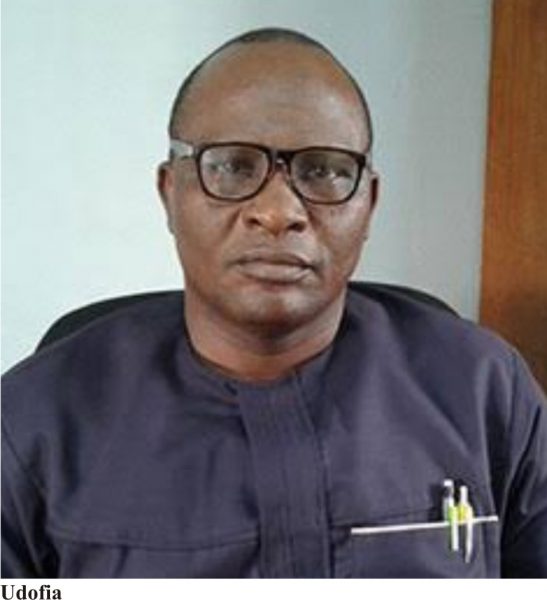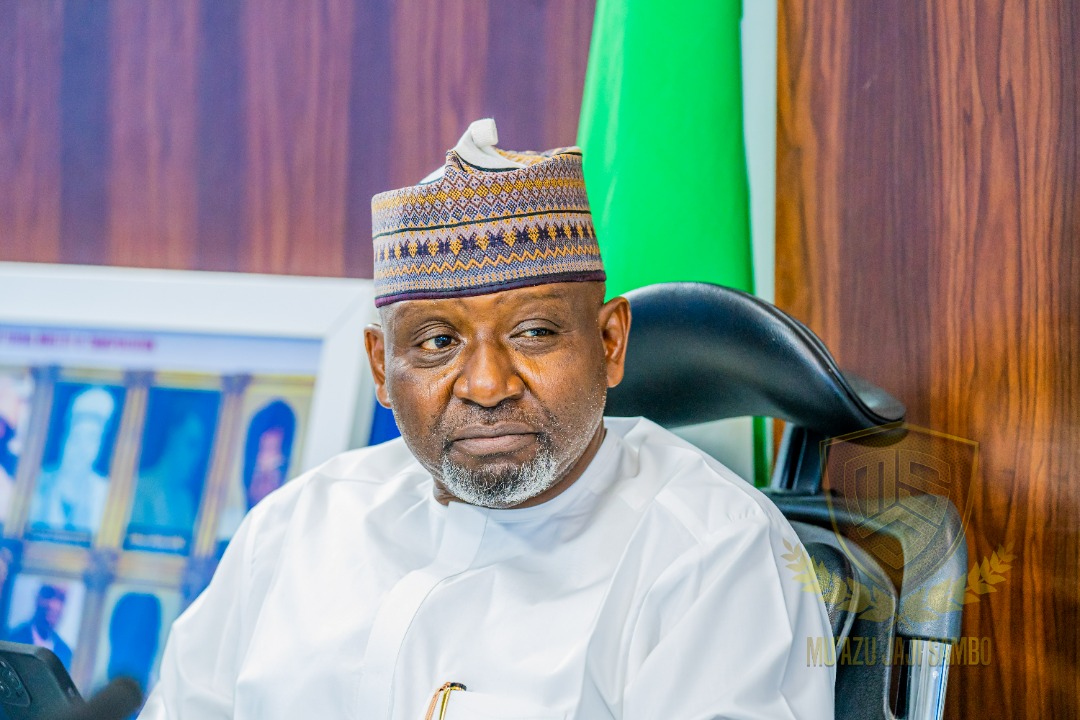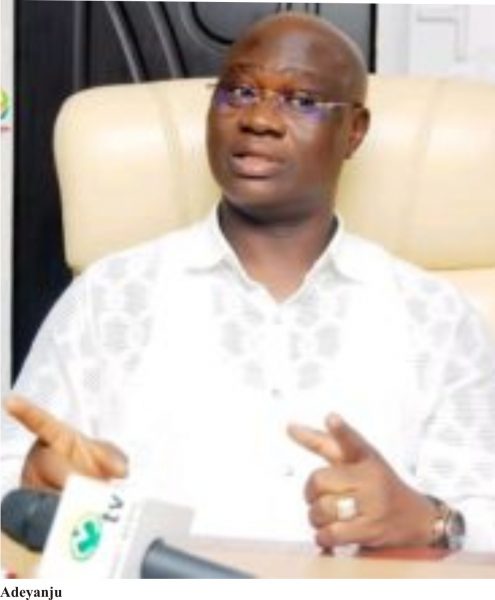Nigerian Exporters Need Training To Meet Global Standards – Udofia

By Kenneth Jukpor
Mr. Ofon Udofia is the Executive Secretary/ Chief Executive Officer of the Institute of Export Operations and Management (IEOM). In this interview with MMS Plus, he harps on the crucial place of training in developing Nigerian exporters to meet global standards. Udofia also appraises the cost of using Nigerian ports and sets an agenda for the new presidential administration. Excerpts:
You highlighted earlier that only one farm in Nigeria meets a certain international standard that enables it sale products at the international market. Can you shed more light on that?
For you to be able to sell your products in the international supermarket like Harrods Stores, Shoprite abroad, World Market, among others, you need to have international certification. There are several global certifications, but there are 220 voluntary standards apart from the mandatory standards from the respective governments.
One of the commonly used global certification is called Global Gap. Unfortunately, over the years none of the farms in the country has been able to acquire that certification, until early this year that one farm in Edo State was able to get the Global Gap standards on fruits; like pawpaw and pineapple. Other African countries are far ahead of Nigeria in this certification as South Africa has over 1,700 farms with this, Kenya has over 1500, Cameroon has over 300 and Egypt has about 650. This is a huge disadvantage to Nigerian farmers and exporters.
You indicated earlier that this challenge also affects the nation’s transport sector. How would you relate this problem to the Nigerian ports and the transport sector?
I was relating this to the transport sector because when the goods don’t have certificate and they get to the port, they would be delayed or rejected. These goods would later constitute a nuisance to the ports, while the farmers and exporters would suffer colossal loses.
I know that this may not be under the mandate of the Minister of Transportation, but it is an interwoven relationship because if people bring substandard goods and they are abandoned at the ports. It constitutes nuisance to the ports and affects the transport chain.
The government is encouraging people to go into export and this is commendable. However, people need to be trained on the intricacies of export business and that’s what the Institute of Export Operations and Management provides. Nigerian Shippers’ Council (NSC) has been one of our major partners over the years as they have given us opportunities to train trade promotion officers in the Council. They have also arranged for the training of shippers. When shippers don’t know what to do or there are mistakes; that would lead to seizures and delay in the port process. So, this area of capacity building is one that we have been working with the Council to ensure that all those involved in export are export ready and well-informed.
You also highlighted some challenges with regards the high cost of port charges in Nigeria in comparison to neighbouring ports. Can you clarify that?
Yes, the cost of using Nigerian ports is more expensive. For instance, if you are doing palm kernel cake export from Nigeria, which we haven’t done since 2014 because of issues of aflatoxin and cost; it should cost you about $23.5 to do a bulk-ship load of 2700 metric tonnes in neighbouring ports, but in Nigeria the cost is between $35-$37. Yet, the global price for this item is not expensive as it is sold for $45-$50 because it is in bulk and it is supposed to be a waste material. As a result of this high cost of port charges in Nigeria, we wouldn’t be able to compare with other dealers on the international scene.
Another problem is that there is no dedicated base for these products in Nigeria. In Cote d’Ivoire, from the farm to the ports there are dedicated bays where such cargoes can be consolidated. We don’t have such dedicated export base in Nigeria. So, I want to suggest that the terminal operators’ agreements should be reviewed to ensure that they create dedicated export base for wet and dry cargoes.
At the moment the terminal concession agreement is being reviewed, besides these specialized export bays, what other areas of terminal operations requires changes?
While the review of the agreement continues, we are writing to the Federal Ministry of Transport, Nigerian Ports Authority (NPA) and other stakeholders to look at this issue of export base as well as other areas that would aid exports in Nigeria.
Nigeria has a new presidential administration, while the Minister of Transportation returned; there is a new Minister of State for Transportation whose attention would be on the ports. What are your expectations and what agenda would you set for this sector?
My agenda for this administration in the next four years would be that we look inwards and do a lot on increasing trade especially exports. With the advent of the African Continental Free Trade Agreement (AfCFTA), if Nigeria must benefit from it, then we must look at it holistically and ensure that our products are competitive. We must also ensure that port charges are reduced so that people are encouraged to come to our ports. We should also take into cognizance the need to train exporters so that they know the best standards and the procedures of the respective export items they specialize in. Capacity building is very crucial to the operators, exporters as well as the agencies of government and the private sector.
There is also a dire need for the Nigerian banking sector to be acquainted with the specialty and peculiarity of export businesses. Bankers need to understand export because export isn’t done carrying cash. There would be need to provide special trainings for bankers while there should also be a security arrangement between the bankers, other ministries and exporters. The institute is there to provide these services. We are based in Port Harcourt but we have presence in all the states of Nigeria.
The institute is willing to partner with any organization in order to curb this knowledge gap. I would also suggest that it is high time we take these trainings to schools at tertiary institutions as well as secondary schools. We can have ‘catch-them-young’ initiative to get young people aware of the numerous opportunities available in export business. It is sad that an important subject like commerce has been removed from the curriculum in most Nigerian secondary schools. This unfortunate trend should be corrected, while export education should be available at Nigerian universities.
Tell us more about the Institute of Export Operations & Management (IEOM).
IEOM is the foremost independent provider of export training and best practice research in Nigeria. Since 2014, the Institute has focused on stimulating and facilitating increased participation of Nigerians and Nigerian SMEs in the non-oil export sector.
We are a Trade and Investment Support Institution (TISI). We provide varied bouquet of support services for exporters in Nigeria via a combination of training, advisory, consulting and advocacy services and innovative products that help you navigate your way to success.
From export readiness planning to applying best practices in export business, we work closely with clients to provide resources, products and services which align closely to their needs.
IEOM’s resources are designed to help you get your export business started on the right footing, and keep you well-informed of market changes, trends and new market opportunities as you scale up your export business.







